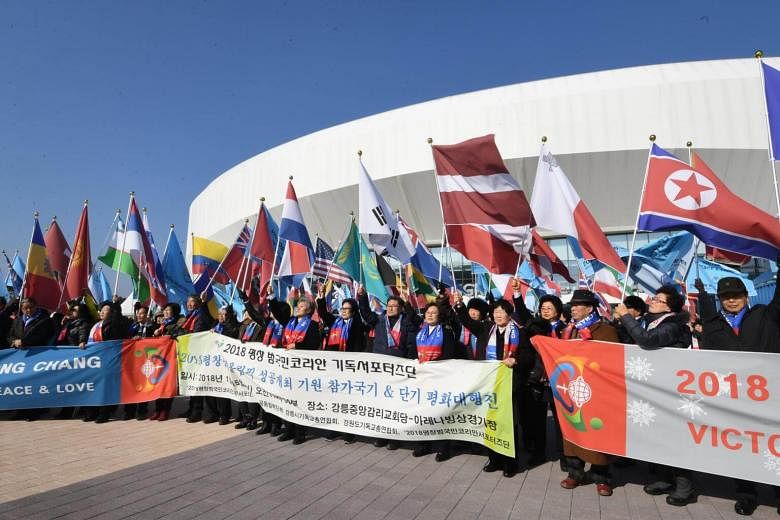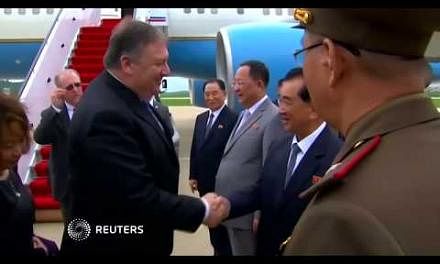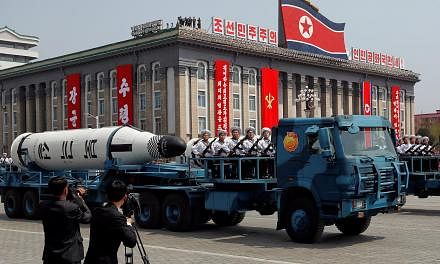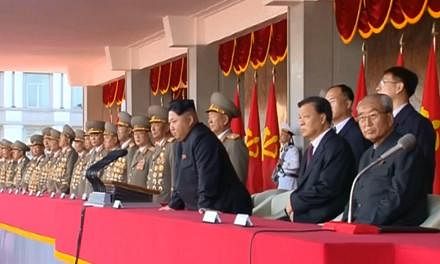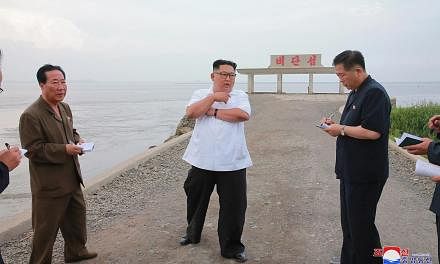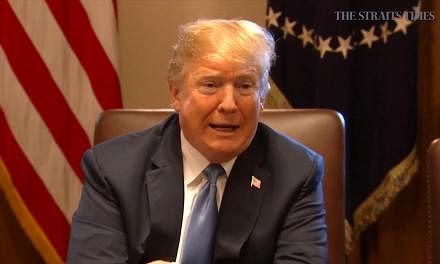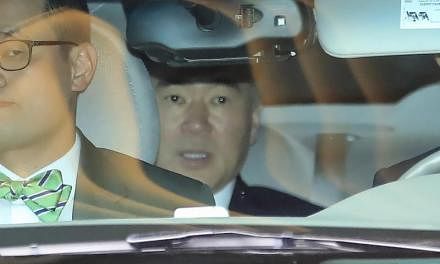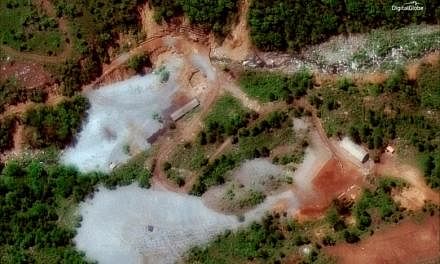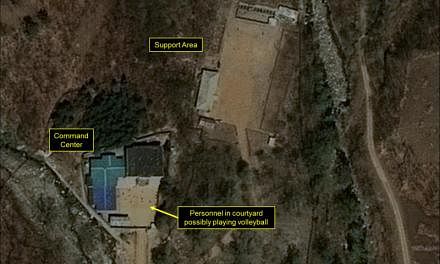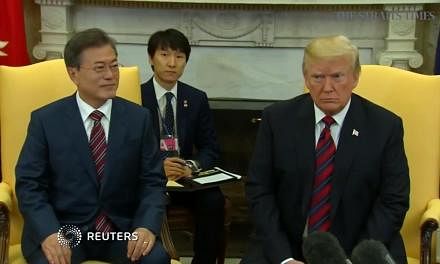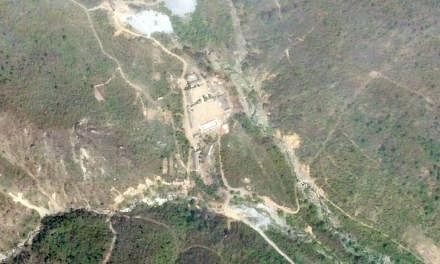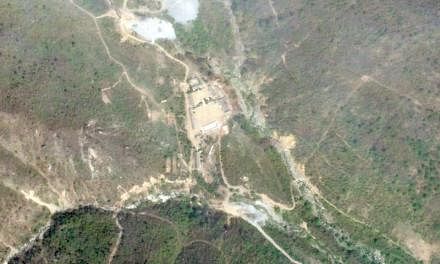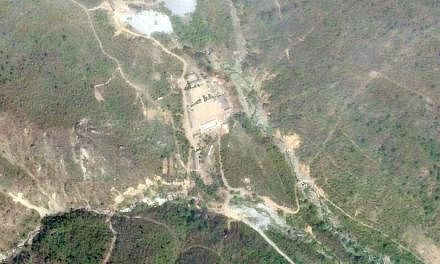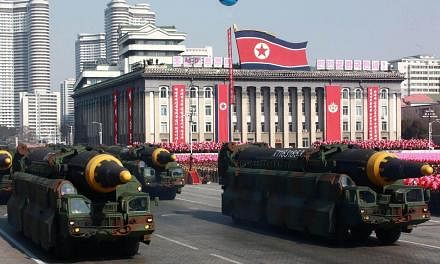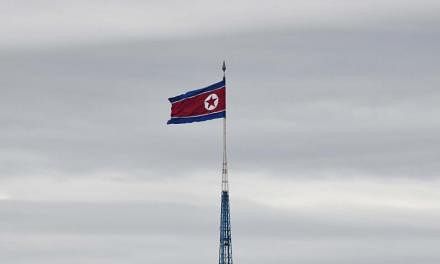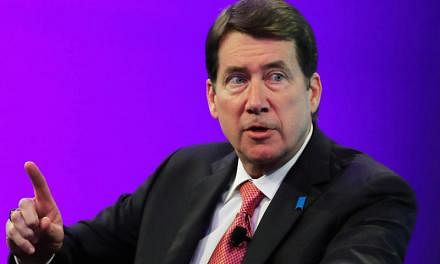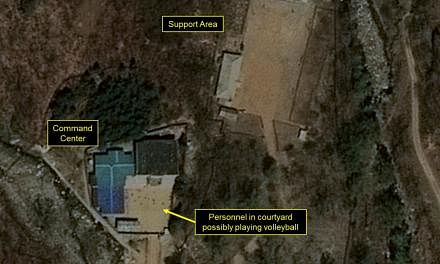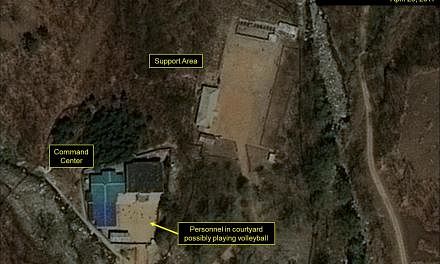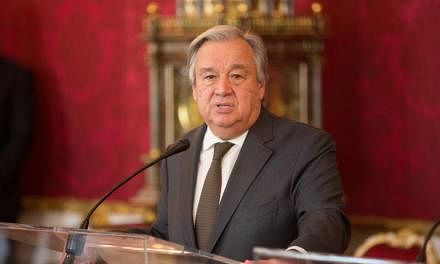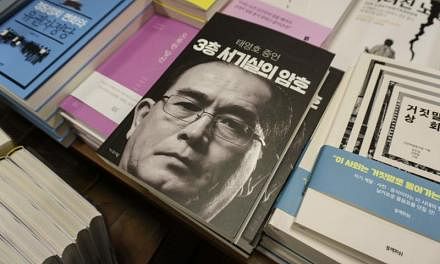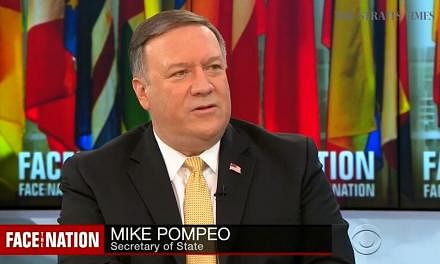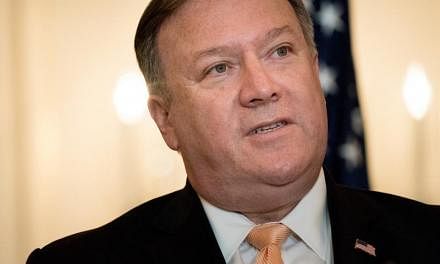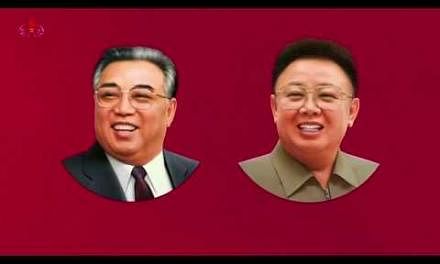SEOUL (THE KOREA HERALD/ASIA NEWS NETWORK) - With hopes rising for an inter-Korean thaw as North Korea plans to send its delegates to the PyeongChang Winter Olympics, South Korea is eager to figure out the best ways to leverage the sporting event as an opportunity to showcase its resolve to bring about peace and stability on the Korean Peninsula.
One of those ideas is to show the world the two Koreas' delegates marching together during the opening and closing ceremonies of the Olympics - an image designed to demonstrate the two Koreas are originally one country and that they long for a reunification.
However, an unlikely debate has emerged among the people of South Korea: If the two Koreas reach an agreement on the idea of marching together, what flag do the two Koreas' delegates raise during the ceremonies?
In order to showcase the two Koreas' solidarity, the Moon Jae In administration and ruling Democratic Party of Korea said the delegates should raise a "Korean Unification" flag - a white flag with the blue shape of the Korean Peninsula in the centre - and not the national flag of either the two countries.
"There is discussion underway. ... (But) If we agreed on marching together with North Korea during the opening ceremony, I think we will raise the Korean Unification flag," Minister of Culture, Sports and Tourism Do Jong Hwan told lawmakers on Monday (Jan 15).
The minister said there was previous precedent.
When the two Koreas marched together during international sporting events - including the 2000 Sydney Summer Olympics - they also then raised the Korean Unification flag in lieu of the national flags.
But there are criticisms, particularly from conservative political parties, that such precedent should not be applied to the PyeongChang Olympics, which South Korea earned the right to host in 2011 after two unsuccessful bids.
Throughout the history of the modern Olympics, whether of the winter or summer games, there is no precedent where the host country has not raised its own national flag during the opening and closing ceremonies.
"I don't think the people would accept the idea of South Korean athletes marching without the Taegeukgi, as it is the epitome of national pride," said Representative Lee Chul Gyu of the main opposition Liberty Korea Party, referring to the South Korean national flag.
Even though there is no such precedents for the Olympics, Minister Do said there are cases when the two Koreas marched together under the Korean Unification flag during international sporting events hosted by South Korea.
Among them is the 2002 summer Asian Games held in Busan. A year later, the two Koreas also marched together under the same flag when South Korea hosted the Summer Universiade in Daegu.
The PyeongChang Winter Olympics are the second Olympics for South Korea to host. It previously hosted the 1988 Summer Olympics in Seoul, which the North boycotted. It was at an international table tennis championship in Tokyo in 1991 that the unification flag was first used.
"A massive Taegeukgi will be raised at the Olympics stadium during the opening ceremony and whenever South Korean athletes win gold medals," the minister told opposition lawmakers, reassuring them the Taegeukgi would be raised throughout the Olympics period.
The minister noted the flag will be further discussed when the two Koreas hold a meeting with the International Olympics Committee this Saturday in Lausanne, Switzerland. The idea of the two Koreas raising their own flags will be addressed as well, Minister Do added.
There is also another debate surrounding the unification flag - whether marching together with North Korea under the unification flag has been really conducive to easing cross-border tensions on the Korean Peninsula?
Liberal-minded politicians and activists assert that the move has been helpful in building a sense of solidarity between the two Koreas, while the conservative and hawkish politicians argue that it has failed to prevent Pyeongyang's relentless nuclear programme.
"I don't think we can raise the North Korean national flag when we are invited to a sporting event in Pyongyang," South Korea's former Unification Minister Chung Sye Hyun said in a media interview. "Therefore, the Korean unification flag is the only thing that makes both feel comfortable."
Conservative parties, however, counter that North Korea has shown no signs of abating in its nuclear ambitions and military provocations - regardless of whether the two Koreas have marched together under the same flag.
North Korea conducted its first underground nuclear test in October 2006 - eight months after the two Korea marched together under the unification flag during the opening ceremony of the 2006 Winter Olympics at Turin, Italy.
"Every time North Korea sent its cheerleading squad waving unification flags, it made headlines. But we ended up with the North Korean nuclear and missile programme," said Representative Kwon Sun Dong of the conservative Liberty Korea Party.
